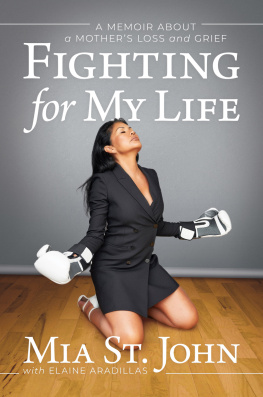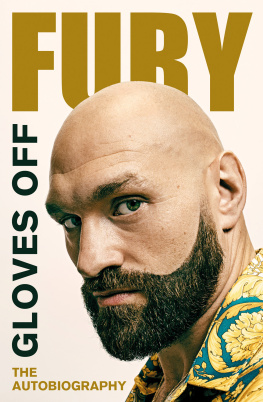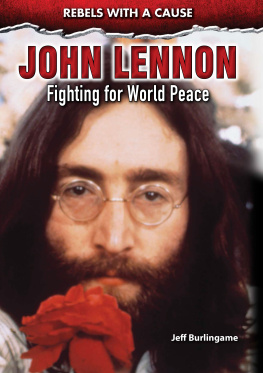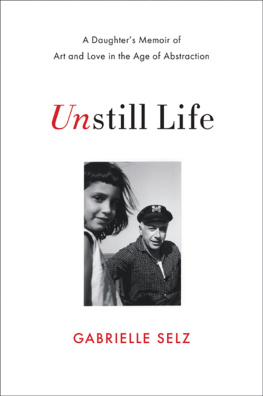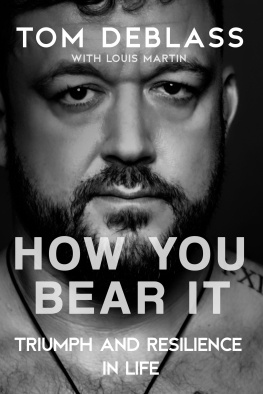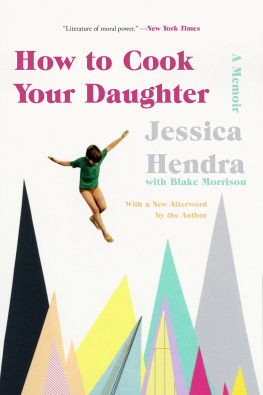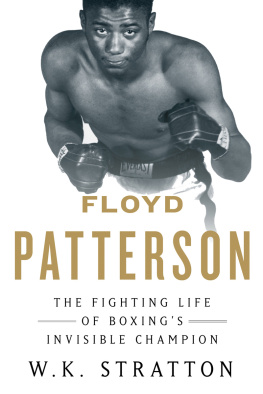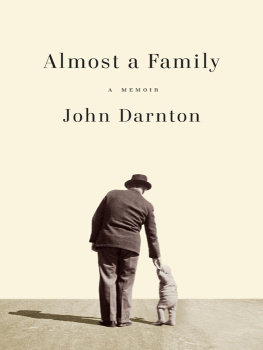2021 by Mia St. John
This is a work of nonfiction. All people, locations, events, and situations are portrayed to the best of the authors memory.
No part of this book may be reproduced, stored in a retrieval system, or transmitted by any means without the written permission of the author and publisher.
CHAPTER ONE
EVERYONE CALLED HIM PANCHITO. His name was Francisco Bojado and he was a young, up-and-coming fighter with a lot of promise. One morning, he walked into my gym and said, Its a beautiful day, today. The sun is shining! Panchito had signed with Main Events, a well-respected group that promotes boxers and matches. He was a friend of Fernando Vargas, a two-time light middleweight champion. Panchito had just started training with my trainers, Eduardo and Roberto Garcia, the much sought-after father-and-son duo. For such a young kid, he possessed the insight of an old soul. He was the kind of guy whose bright smile melted hearts, and he uplifted everyone around him with his fun-loving demeanor. Every time I saw him, he would come in and say the same thing: Its a beautiful day and the sun is shining.
I was not much of a talker. I preferred to keep to myself and focus on the training drill in front of me. I would smile back and say, Yeah, its a beautiful day. I wasnt even sure if I really meant it. It was polite and allowed me to move on.
One day he asked me, Do you know why I always say that? I stopped working out to focus on him. I confessed that I didnt. He leaned in as if to tell me a secret. He said the world of boxing was an intense place and a dark world. Its trueits filled with shadowy deals, foreboding figures, and near-death experiences. Its so depressing, he said, that whenever I see the sun shining, I remember the world is a bright place. And as long as the sun was out, he always remembered that.
Those words hung in the gyms stagnant air long after he walked away. And theyve travelled with me ever since. He summed up what I had been feeling throughout my career as a fighter. I could never verbalize what it meant to be a fighter until now. I couldnt believe it. Here was an eighteen-year-old boxer whose career was just getting started and he knocked me out with his wisdom. I never saw Panchito after that day. He left for a new gym and went on to represent his country, Mexico, at the Summer Olympics in Australia. I didnt realize the impact his words would have on me, but it was such a relief to know that there was another person in this world who felt the pain and heartache I felt every day in the ring. Its a feeling thats difficult to explain to a person who has never fought for their life. When I step into that ring, I walk into the darkest part of my soul. And when I leave, the dark cloud follows me. There have been moments when the cloud disappears, like on a beautiful, sunny day, or the days I gave birth to my two precious babies, or when I dream about the people Ive lost. For those brief periods, I forget my dark world.
Its difficult for me to let go of the darkness that Ive carried with me for so long. It may be one of the main reasons I turned to the ring, where I could unload the baggage filled with years of pain I endured throughout my childhood. I felt powerful whenever I took a hit, or better yet, when I gave one. Winning was all I ever wanted, and I chased it for a long time. Its the feeling I live for, and something I cant live without. Losing is a completely different animal. When I lose, I come back stronger and I hit harder, so you wont ever hurt me again. My opponent was a victim of all my dysfunction. My opponent, unknowingly, paid the price for all of my pain.
To know my pain is to learn how I came to be.
I can remember the green, red, and white flags flapping in the wind across the top of the bridge that read Mexico each time my family and I crossed the border. Id sit quietly in the back seat of our car and Id leave my American world and transport into my mothers. It was hard to believe that a simple bridge connected completely opposite worlds, yet I lived in both. My mothers world began in Juchipila, a small barrio in the state of Zacatecas where she was born and raised.
The word Zacatecas comes from the Nahuas word zacti, or grass, and tecatl means peoplepeople of the grass. There was no running water and no electricity. Her house was nothing more than a mud hut. I was two years old, and my sister was almost four. Sometimes, I could almost feel my mothers heart pound when we would cross the border. Even though she had her papers to legally live in the States, the anxiety was palpable. In order to get to Juchipila, it required a brutal four-day train ride deep into an unfamiliar and almost untouched part of the country. It was called Barrio de la Cantera. Rosales was the family name that dominated the town. Everyone knew everybody and were probably related.
We never went for long weekends. When wed visit, wed spend long stretches of time there and settle in. Every morning, my sister and I waited outside for the breadbasket lady, who lumbered down the street with a basket of pan dulce on her head. It was about six oclock in the morning and the towns colors would begin to twinkle as the sun began to rise. The sweet bread in her basket came in an array of colors toopink, coffee, chocolate, and some came dotted with vanilla sprinkles. I can still smell the pastries. When wed reach for our favorite one, unsurprisingly, ants trailed across the top. We didnt care. We brushed them off and ate our sweet bites of heaven. We werent picky because we never knew when wed see treats like this again. The nearest mercado, or supermarket, required a burro ride into the city, which rarely happened. If we didnt get pan dulce, we devoured delicious guava wed picked from the trees. Before we ate them, wed have to pick out the worms nestled inside. Mexico was a hard life, but we never complained.
My mother grew up with orange, lime, and lemon trees. She often described the oranges becoming so ripe that they looked gold in the sunlight. She thought it was magic, and so did I. The barrio was filled with obeliscos romero flowers, and a guayacan tree that bloomed with bright yellow flowers that smelled like summer. The plant would climb across the trees like a winding rope. My mother would swing from them and imagine she was in a jungle only found in fairy tales. It was during these moments that she admitted she felt incredibly alone, wondering if there was more beyond her barrio.
My sister and I would play in the sugar cane fields while the women walked to the nearby river to wash the clothes and dishes. Everything was lush and green in Juchipila. The days were beautiful, and the nights were unforgettable. In the neighboring city, there were carnivals blanketed with countless strings of lights, but in the barrio, there were bonfires. The fire would get so high, I was sure the flames could touch the stars. Wed laugh and dance while drinking our Cokes, as the grown-ups sat around drinking their beer and wine. Once when we were visiting, I walked into a store and heard Neil Diamonds Cracklin Rosie in Spanish. It became my favorite song, and I learned every word in Spanish. It would be many years later that Id finally learn that Neil Diamond wasnt Mexican, and that he was Jewish.

